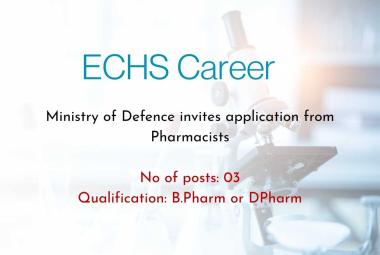{ DOWNLOAD AS PDF }
ABOUT AUTHOR:
Dinesh Kumar Meena
Department of Pharmacy,
Annamalai University, Annamalai nagar, Tamil Nadu.
*dinesh8989pharmd@gmail.com
ABSTRACT
A medication error is the failure of treatment process that may be harmful for the patient. A medication error can occur in deciding which medicine and dosage regimen to use, prescription writing, manufacturing the formulation, administrating the medicine, monitoring therapy. Avoiding medication error is important for the safety of patient as well as better therapeutic outcomes. Medication error may not be clinically significant on many occasions but they have serious economic consequences like extended hospital stays, additional treatment and malpractice litigation. Medication error are well known problem in hospitals. Medication error and adverse drug reactions are one of the main causes for adverse events in hospital leading to disability and death. Pharmacist is responsible for the safe and appropriate use of medication in all pharmacy practice settings. As the part of the multidisciplinary health care team, the pharmacist role is to cooperate to establish patient-specific drug therapy regimens designed to achieve predefined therapeutic outcomes without subjecting the patient to undue them. As pharmacist becomes more involved in patient – specific care, technician is asked to perform tasks that have previously been restricted to pharmacists. As their responsibilities expand, technician need to be aware of the significance and cause of medication errors and to recognize their role in preventing those errors.
INTRODUCTION
A medication– A medication or medicinal product is a product that contains therapeutic active ingredients and excipients (therapeutic inactive ingredients) which forms the matrix or formulation of the products. [1]
An error– An error is something incorrect done due to ignorance, lack of knowledge, speech, writing or action.[2]
A medication error– A medication error is the failure of treatment process which may be harmful for patient.[3, 4] A medication errors is an error in the medication ordering, transcription, dispensing, administration and discharge summery.[5] the implementation of medication process includes participation of various health care providers like prescribers or physician, pharmacist and nurses. The medication process begins with the prescriber’s decision about the administration of proper medicine in correct dosage regimen to patient and ends with the medication administration to him/her and monitoring of therapeutic response.[6] Medication error is the most prevalent type of medical error occurring for decades. In 1982, the American journal of hospital pharmacy published a report on measurement of medication error in small hospitals and clinics and other primary health care centers.[7]
The united kingdom’s nursing and midwife counsel underlines that scientific judgment, knowledge and skill applications plays a important role for the administration of medication.[8] Medication error is a preventable event which related to professional practice, health care product, procedures and systems including prescribing, order communication, product labeling, packaging, nomenclature, compounding, dispensing, distribution, and administration, education, monitoring and use.[9] The error and deficiency may also result of unsafe practice by humans involved in health care (e.g. omission of re-check of the medication order by doctor) and also due to lack of communication between the primary care and secondary care services. Some of medication errors may result in ADR occasionally a medication error can result in adverse event that is not ADR.[10]
[adsense:468x15:2204050025]
Adverse drug reactions- The World Health Organization (WHO) defines an adverse drug reaction (ADR) as any response to a drug which is noxious and unintended, and which occurs at doses normally used in man for prophylaxis, diagnosis or therapy of disease or modification of physiological functions. An ADR is unpleasant reaction or symptom resulting from use or administration of medicinal drug product.[1]
Adverse drug events- World Health Organization defines (WHO) defines adverse drug events as any untoward medical occurrence that may present during treatment with pharmaceutical product but which does not necessarily have a causal relationship with this treatment.[1]
TYPES OF MEDICATION ERRORS
For better understanding medication errors, it is necessary to distinguish various types of medication errors. On the basis of condition in which error occurs, medication errors classified as following.[11, 12]
Omission error– A dose of a drug was not administered as ordered but was skipped
Wrong dose error- The wrong dose of a medicine or the wrong strength is ad- ministered
Wrong dose form error- A patient receives a dose of medicine in a dosage form that was not intended
Unordered drug error- A medication is administered that was not prescribed for patient.
Wrong time error- A patient does not receive a dose of medication at the time at which it was to be administered.
Wrong route of administration error– A patient receives a dose of a medication by a route that was not ordered by the physician.
Wrong administration technique error- Injecting the drug without wiping the injecting site with alcohol.
Wrong dose preparation error– Administering the oral suspension without shaking it.
Wrong drug error- A drug that was not ordered for a patient was administered.
Extra dose error- A patient receives more doses of a drug than were ordered.
Extra - Errors that do not fit into any of the other categories, Dose.
CAUSES OF MEDICATION ERRORS
Medication errors are not result of single, isolated human error.[13] ISMP (The Institute of safe Medication Practice) has identified 10 key factors which play important role on medication use. Ignoring or weakness of these factors may result in medication error. These are:[14]
Adequate communication – Poor communication among physician, pharmacist and nurses may lead to medication error. “SBAR” method (situation, background, assessment and recommendation) is may help to promote communication among healthcare profession.
Drug information – Up to date drug information should be available to all caregivers. It includes past medication history as well as current medical information. Protocols, text references, computerized patient records, order sheets are the major sources to obtain patient information. Wrong information or incorrect maintenance of these sources may lead to medication errors.
Patient information- Includes mane, age, sex, date of administration, weight, height, lab results, allergies, diagnosis, past history, vital signs, etc. missing or incorrect patient information may result in medication error.
Patient education – Health care givers should teach the patient about proper use of medication, route of administration, time of administration, possible adverse drug reaction, interaction as well as pre and post pandiol advice. Improper use of medication may be harmful for patient.
Quality process and risk management – Medication error can be reduced by establishing quality process and risk management strategies. Medication errors can be catch and corrected by simple redundancies like using an independent double check system.
Staff education and competency – Proper education program for nurses and other health care providers can help to reduce medication errors. New medications need high teaching priority. Staff should receive all information regarding both external and internal medication errors. This information should be made readily available through medication-related policies, procedures and protocols.
Environmental factors – Certain environmental factors like inadequate lightening, cluttered work environment, increased patient acuity, distraction during drug preparation or administration and caregiver fatigue may lead to medication errors.
Drug device acquisition, use and monitoring – Medication errors may also result from improper use, acquisition and monitoring of drug delivery devices.
Medication storage, stock, standardization and distribution- Restricting access of high alert drugs, decreasing of floor stock medication and timely distribution of new medications can help to reduce of medication errors.
Drug packaging, labeling and nomenclature – Many drugs packaging looks similar. Manu drug products can cause medication errors due to their names looks alike or sound alike. Therefore it becomes necessary to provide medications in clearly labeled unit-dose package.
PREVENTION OF MEDICATION ERRORS
Medication errors can be prevented by an understanding of, and respect for, the role of other healthcare professionals, and of the need to collaborate with others in caring for individual patients and in promoting the health of defined population. Health care professionals must be knowledgeable and demonstrate an understanding of the power of the scientific method in establishing the causation of disease and efficacy of traditional and non-traditional therapies. Medication error can also be prevented by understanding interactions of their practices with the large system, knowledge of practice and delivery system as well as by working within a team.[15, 16, 17]
CONCLUSION
Medicines cure but they can also kill or cause severe adverse drug reactions if a wrong medicine is administered or if the dosage is wrong. Medicine errors can occur in many ways and also can be prevented in many ways. Errors occur at all levels of the medication use system from prescriber to the consumer through many intermediate levels. Quality improvement requires in most of stages of the medication process. Health care providers should always ensure for best health care practice for every patient and try to avoid any kind of harm. Medication errors put patient health in unnecessary risk. The goal of medication error elimination can be achieved by giving the required attention to the risk factor and applying the suitable prevention measures.
REFERENCES
1. Aronson JK, Ferner RE. Clarification of terminology in drug safety. Drug Saf 2005; 28:851–70.
2. Oxford English Dictionary [online]. [ezproxy.ouls.ox. c.uk:2118/entrance.dtl] Accessed 10 April 2009.
3. Ferner RE, Aronson JK. Clarification of terminology in medication errors: definitions and classification. Drug Saf 2006; 29:1011–22.
4. Aronson JK. Medication errors: definitions and classification. Br J Clin Pharmacol 2009; 67 in press.
5. Bates DW, Boyle DL, Vander Vliet MB, Schneider J, Leape L. Relationship between medication errors and adverse drug events. J Gen Intern Med 1995; 10: 199–205.
6. An inside look into the factors contributing to medication errors in the clinical nursing practice. Savvato Karavasiliadou1, Efstratios Athanasakis2
7. K N Barker,R L Mikeal,R E Pearson, N A Illig, and M L Morse,“Medication Errors in Nursing Homes and Small Hospitals”, American Journal of Hospital Pharmacy, 39 (June 1982), pp. 987–991.
8. Nmc-uk.org [homepage on the Internet]. UK, Nursing and Midwifery Council. Standards for Medicines Management. 2010. [cited 2013 December 2]. Available from: nmc uk.org/Documents/NMC-Publications/NMC-Standards-for-medicines-management.pdf.
9. Nccmer.org [homepage on the Internet]. USA National Coordinating Council for Medication Error Reporting and Prevention. The First Ten Years. 2005. [cited 2012 Jun 25]. Available from: nccmerp.org/pdf/reportFinal2005-11-29.pdf.
10.Department of health.gov [homepage on the Internet]. Department of Health-UK. An organisation with a memory. Report of an expert group on learning from adverse events in the NHS. [updated 2000, cited 2012 Jul7] Available from: dh.gov.uk/en/Publicationsandstatistics/Publications/PublicationsPolicyAndGuidance/DH_4065083.
11. E L Allen and K N Barker, “Fundamentals of Medication Error Research”, American Journal of Hospital Pharmacy, 47 (March 1990), pp. 555–571.
12. Cohen M R ed. Medication errors. Washington, DC, American Pharmaceutical Association, 1999.
13. Institute for Safe Medication Practices (2003), ISMP’s Focus on Cooperation..., single-page handout, ISMP’s informational packet.
14. Medication errors: Don’t let them happen to you Mistakes can occur in any setting, at any step of the drug administration continuum. Here’s how to prevent them. By Pamela Anderson, MS, RN, APN-BC, CCRN, and Terri Townsend, MA, RN, CCRN, BC, CVN-II. March 2010 Vol. 5 No. 3
15.American Academy of Pediatrics Committee on Drugs and Committee on Hospital Care. Prevention of Medication Errors in the Pediatric Inpatient Setting. Pediatrics 1998; 102: 428-430.
16.Bates DW. A 40-year-old woman who noticed a medication error. JAMA 2001; 285: 3134-3140.
17.Bates DW. Using information technology to reduce rates of medication errors in hospitals. BMJ 2000; 320: 788-791.
REFERENCE ID: PHARMATUTOR-ART-2246
|
PharmaTutor (ISSN: 2347 - 7881) Volume 2, Issue 9 Received On: 12/07/2014; Accepted On: 16/07/2014; Published On: 01/09/2014How to cite this article: DM Meena; Medication Error - Major Problem in Healthcare Practice; PharmaTutor; 2014; 2(9); 59-62 |
NOW YOU CAN ALSO PUBLISH YOUR ARTICLE ONLINE.
SUBMIT YOUR ARTICLE/PROJECT AT articles@pharmatutor.org
Subscribe to Pharmatutor Alerts by Email
FIND OUT MORE ARTICLES AT OUR DATABASE









